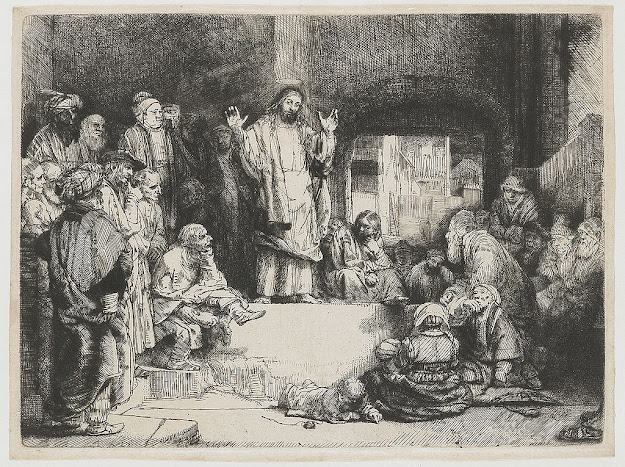We all know that it is wrong to judge. After all, Jesus said, “Judge not lest you be judged”, right? Unfortunately, we also are not very good at actually following that teaching. Too often, when someone offends us, or causes us some grief, or does something about which we disapprove, we judge them straight away: we make conclusions about their intentions, or about their character, or about how they will act in the future. And often we go and tell everyone else about it – everyone that is, except the person who wronged us.
In today’s Gospel, Jesus explains a better way to act. What he encourages us to do is difficult, and it might make us uncomfortable. It may even seem that what he advises runs counter to what he said elsewhere – about the importance of not judging. After all, “who are we to judge?” But there is a difference between judging someone – judging their entire person, judging their soul – and speaking with them about their offense against us. In fact, addressing a wrong done to us by another person might actually help us to refrain from judging the person. To use an old adage, we can “hate the sin but love the sinner”. And sometimes part of loving the sinner, as Jesus explains today, is helping them to understand and to be sorry for what they did.
 |
| Rembrandt van Rijn, Christ Preaching ('La Petite Tombe') (c. 1652) |
So let’s take a closer look at what Jesus says. He begins: “If your brother sins against you, go and tell him his fault between you and him alone.” A few of those words jump out to me. “Alone” – that is, we don’t share the other’s sin with anyone and everyone else; we go to them directly. “Sins against” – in other words, we’re not talking about a petty fault or a minor inconvenience. It needs to be something important, something that hasn’t just harmed us, but has harmed the one who did it and our relationship with them. And “Brother” – this isn’t a stranger or an acquaintance; in those cases, when someone hurts us, it is often best to let it go. Even when it is a brother or sister, someone from our family, or someone we are connected to in friendship, in faith, in some other relationship, sometimes we can make great strides spiritually by forgiving hurts, especially if the other does not realize they have hurt us.
But, if it is something important – Jesus says, “a sin” – first we go to them directly and alone and explain how we have been hurt. If speaking privately doesn’t work, then Jesus says to bring in one or two others, or even “the church,” that is the broader community of believers. This is *not* a permission to gossip about the other person, but rather an effort to help them understand that what they did is truly bad, and not just from our viewpoint. If they still won’t listen to us, then we have to treat them, Jesus says, “like the Gentile and the tax collector.” That is not to say that we shun them – Jews of Jesus’s day couldn’t completely avoid Gentiles or tax collectors – and it doesn’t mean we write them off either, since that would be judging. Rather, it means we limit our interactions with them; we are wary of allowing them to hurt us again. Those who are hardened in their sin – those who have “hardened their hearts,” as the psalmist says today – often can’t be made to understand by anyone except God himself, by the power of his grace. That’s why we should always pray for those who hurt us – even those who don’t realize it, even those who have been hardened by years of sin. Nothing and no one is beyond God’s reach.
Finally, friends, let’s remember that all of this can work the other way, too. If Jesus permits us to help our brother to recognize and repent when he has sinned against us, then just as much or more is he also giving permission for our brother to help us to recognize and repent when it is we who have done the sinning. To correct someone else, or to be corrected ourselves, can be challenging and humbling, but it is all in service of the greater good, aimed at reconciliation. And that’s why it is *not* judging – because the goal is restoring the relationship, so that we and the other person can keep encouraging each other to further growth, further holiness.
May this Eucharist, the Sacrament of Charity, help us to open our hearts to reconciling with those who have hurt us, and prompt us to seek it with those whom we have hurt.
No comments:
Post a Comment